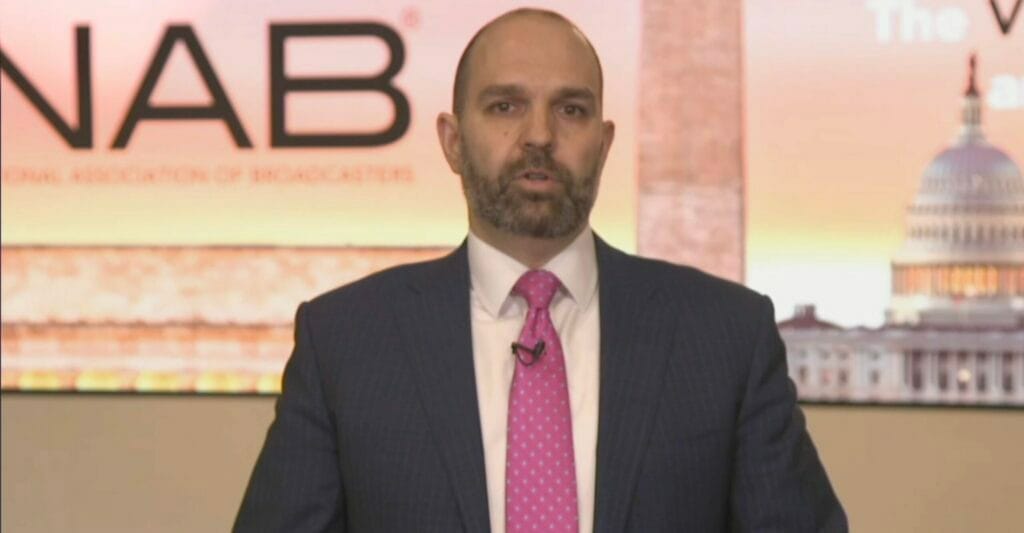Broadcasters Go Against Big Tech With Congress Forcing Negotiations
NAB publicly advocates for the Journalism Competition and Protection Act, despite concerns.

WASHINGTON, February 16, 2022 – The president of the National Association of Broadcasters is urging Congress to pass legislation that would allow broadcasters and news organizations to negotiate with Big Tech platforms on terms to host their content.
Curtis Legeyt said at an event hosted by The Media Institute Tuesday that the Journalism Competition and Preservation Act, sponsored by Senator Amy Klobuchar, D-Minnesota, would help smaller broadcasting stations get their share of the pie and allow them to compete against larger players in the industry.
“There is simply too much at stake if we don’t face big tech’s online dominance,” Legeyt said. “The best thing that Washington can do is enable us to compete.”
The bill, which was introduced last March, would give broadcasters and digital news companies the ability to withhold over a four-year period content from big technology platforms unless the platform – with one billion monthly users or across all its products, which includes Facebook and Alphabet – agrees to certain terms, including financial compensation.
The legislation has seen similar versions contemplated in other countries around the world, including in Canada and Australia, where big tech companies would be compelled to pay to link to news sources. Facebook, one large platform that would be subject to U.S. legislation, has struck deals to host news content in Australia.
Some hesitant about legislation
Organizations including public interest groups Public Knowledge, Creative Commons, Free Press Actions and others sent a letter to Klobuchar and ranking member on an antitrust committee Sen. Mike Lee, R-Utah, expressing their concerns about the bill.
The letter said the bill will exacerbate the power dynamic between large and local media organizations. They said the negotiations between content creators and distributors “may actually hurt local publishers by entrenching existing power relationships between the largest platforms and largest publishers.”
“News giants with the greatest leverage would dominate the negotiations and small outlets with diverse or dissenting voices would be unheard if not hurt,” the letter said.







